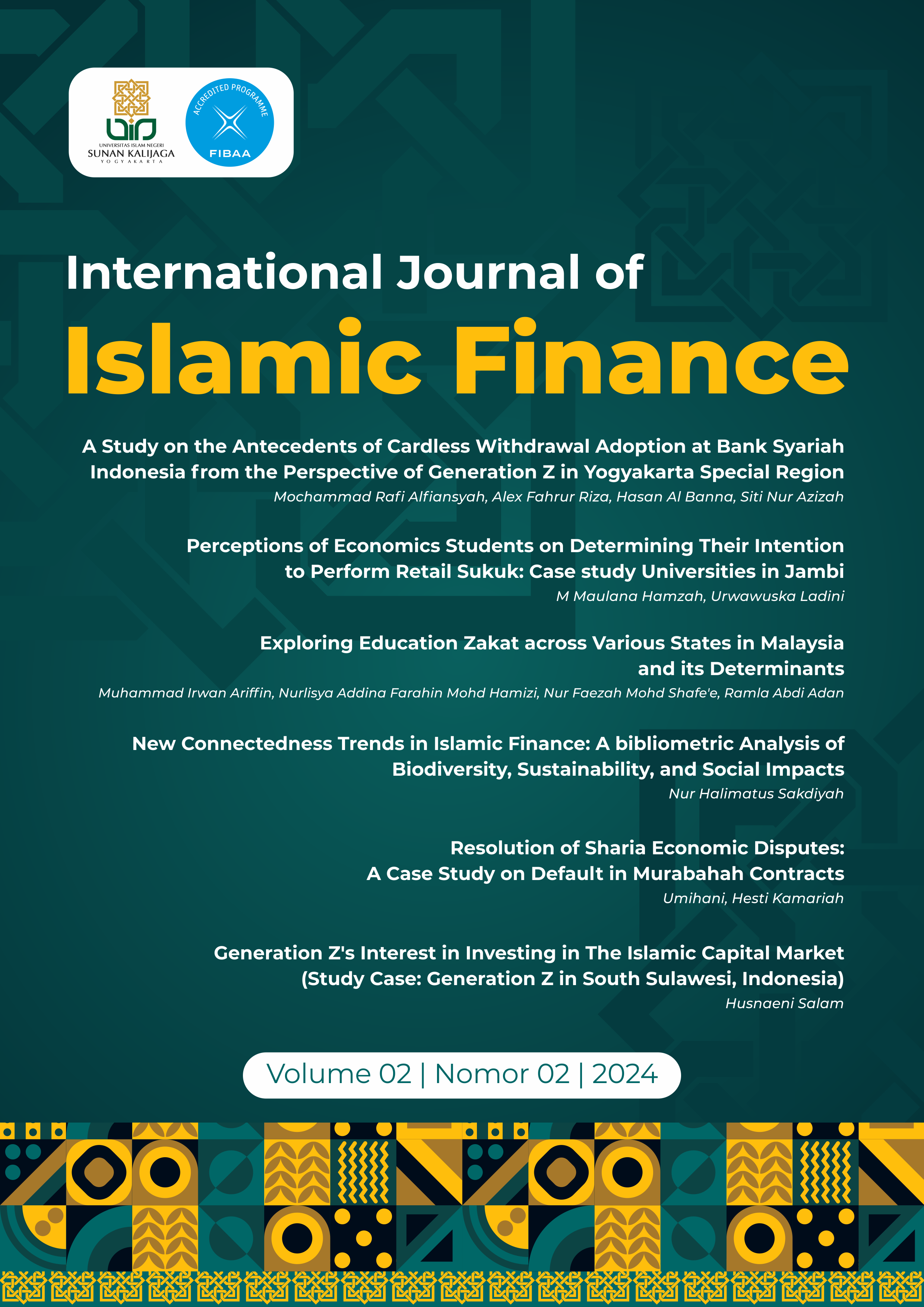A Study on the Antecedents of Cardless Withdrawal Adoption at Bank Syariah Indonesia from the Perspective of Generation Z in Yogyakarta Special Region
DOI:
https://doi.org/10.14421/ijif.v2i2.2213Keywords:
Cardless withdrawal, Technology Acceptance Mode, Generation ZAbstract
Abstract
Background: The development and growth of technology in the banking sector, especially in sharia banking services, has a significant impact on consumer behavior, especially among the younger generation/generation Z
Objectives: This research aims to determine the factors that influence adoption cardless withdrawal Indonesian sharia bank through the perspective of generation Z D.I.Yogyakarta through approach Technology Acceptance Model 3 (TAM 3).
Novelty: The novelty in this research lies in the development of a more comprehensive and specific technology acceptance evaluation model, namely by application Technology Acceptance Model (TAM) in context Cardless Withdrawal on the BSI application mobile banking
Research Methodology / Design: In designing this study, the approach applied was a quantitative method. This research was distributed using an online questionnaire in the form of Google Form to 168 respondents who are Generation Z users of the cash withdrawal feature without a BSI card Mobile banking. The data collected was then processed using the SmartPLS 3.0 application for statistical analysis.
Findings: The research results show that seven of the eight variables have a positive influence on the adoption of the cardless cash withdrawal feature, while one variable, namely computer anxiety, has a negative influence on the perception of ease of use. These findings indicate that although these features are generally well received by users, certain factors such as technology anxiety remain barriers that need to be overcome.
Implication: Theoretically, this research enriches the literature on technology adoption in the Islamic banking sector with empirical evidence regarding the effectiveness of the cardless cash withdrawal feature. Practically, these results can be used by Bank Syariah Indonesia and other financial institutions to improve marketing and product development strategies, as well as to overcome obstacles faced by users in adopting this technology. Thus, this research helps encourage wider and more effective adoption of digital banking technology.





